Tidal lagoon: Stop dithering and approve project, says Labour
- Published
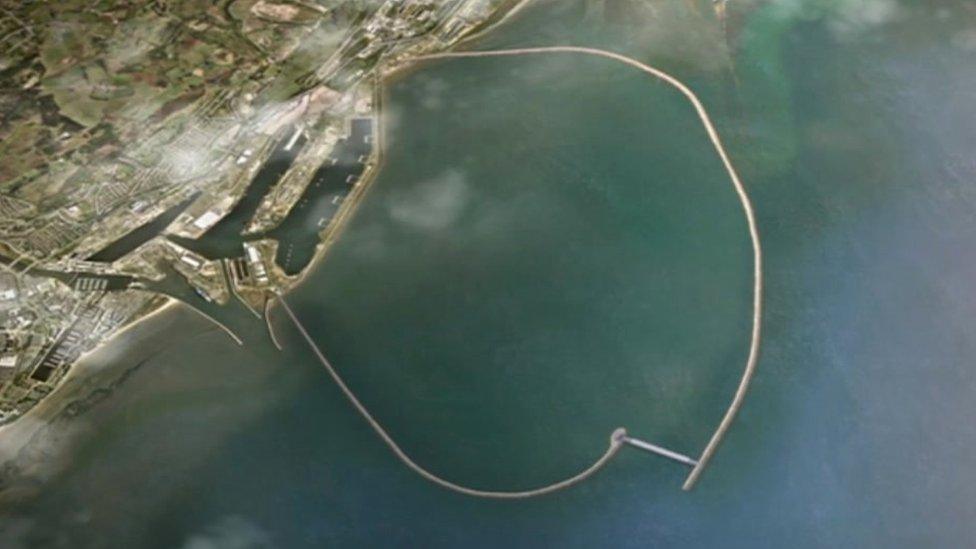
UK ministers should "stop dithering" and approve plans for a £1.3bn tidal lagoon in Swansea Bay, Labour has said.
The proposals have been backed in a government-commissioned review led by ex-energy minister Charles Hendry.
But the Angling Trust called for more environmental research to avoid "a colossal series of white elephants".
Ministers said they would study the report and decide how lagoons could contribute to the energy needs of Wales and the UK.
Mr Hendry's report into the technology's viability said it would make a "strong contribution" to the UK's energy supply and be cost effective.
He said approving a "pathfinder" lagoon off the Swansea coast should be seen as a "no regrets" policy.
Labour shadow business secretary Clive Lewis said there were "high hopes that tidal energy will get cheaper fast, as we've seen in other renewable technologies".
"The government has repeatedly delayed this project, despite Labour backing it months ago," he said.
"It's time to stop dithering and get it built."

Clive Lewis said Labour was committed to tidal lagoon technology
Plaid Cymru leader Leanne Wood called the report "game-changing news for Swansea and for the nation".
"We now need to ensure that the project generates and delivers local jobs," she said.
For Welsh Liberal Democrat leader Mark Williams, the announcement was a "huge step forward".
"If we are to meet our climate change targets, it is vital that we invest up front for these type of ambitious projects," the Ceredigion MP said.
Pippa Bartolotti, deputy leader of the Wales Green Party, also called for the UK government to approve the project, saying the £1.3bn cost was "chickenfeed" compared to £37bn for the Hinkley C nuclear reactor.
Sarah Kessell, chief executive of the Wildlife Trust of South and West Wales, says the programme must proceed very carefully
Friends of the Earth (FoE) welcomed the document, but stressed it was crucial that any potential impacts on wildlife and the wider environment were properly considered before any lagoons were built.
FoE Wales acting director Haf Elgar added: "New clean energy sources are important but it is crucial that the government also ensures that adequate investment is targeted right now in low cost, renewable technologies, like solar and wind, that already generate a quarter of UK power."
Angling Trust & Fish Legal chief executive Mark Lloyd praised Tidal Lagoon Power, the company behind the scheme, for a "first rate job at spinning this project politically".
But he said the firm had "failed spectacularly to quantify" the impact on communities, wildlife and fisheries.
"The government should avoid giving its backing to what could be a colossal series of white elephants before carrying out a more strategic assessment of the sustainable management of the Severn Estuary and other areas with large tidal ranges around the UK," he said.
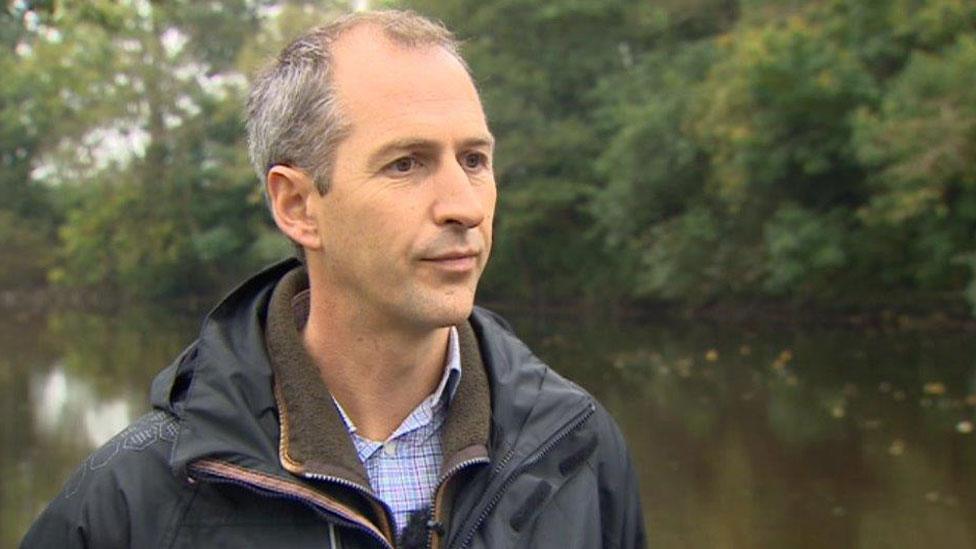
Mark Lloyd said he cannot see how lagoons would leave the environment in a better state
Joan Edward from the Wildlife Trusts also urged caution, calling the Severn Estuary a "remarkable and unique cathedral of Britain's natural heritage".
"Any major development within it risks dramatically affecting the fish and birds and other wildlife that depend on it," she said.
"We recognise the urgency for renewable energy development but its overall environmental impact must be assessed."
However Juliet Davenport, chief executive of scheme investor Good Energy, said launching a British tidal lagoon industry would be "presenting the world with another awesome low-carbon option".
"It is British know-how that will be called upon should other countries look to take up that option," she said.
"Tidal lagoons are a brilliant way for Britain to diversify its energy mix, keep the lights on [and] create a whole new industry and thousands of jobs."
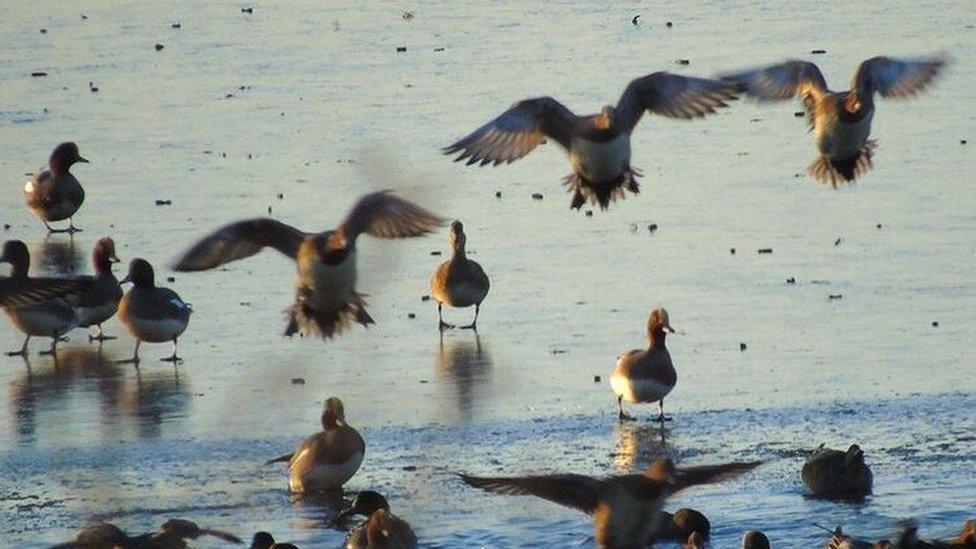
The Severn Estuary has been described as a huge motorway service station for migrating birds
Welsh Secretary Alun Cairns thanked Mr Hendry for a "comprehensive report" which sets out "both the opportunities and challenges".
"We now need to study this report and decide how tidal lagoons could contribute to the nation's energy needs both in Wales and the rest of the UK," he said.
A Welsh Government spokesman welcomed the "strong case for Swansea Bay Tidal Lagoon to be a small scale pathfinder project, subject to number of key approvals in place".
"We will be considering the content of the report and look forward to discussions with UK government on how they intend to take the findings forward," he added.
- Published12 January 2017
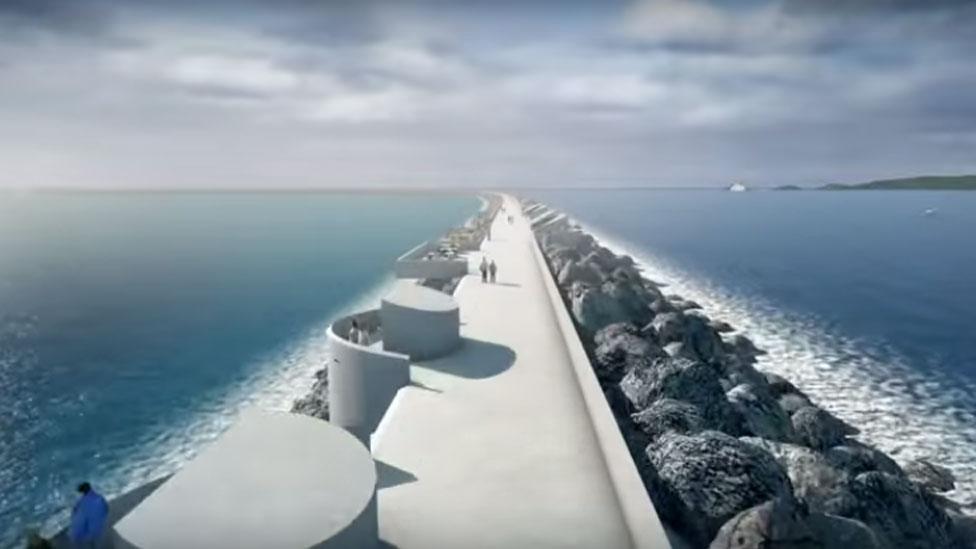
- Published12 January 2017
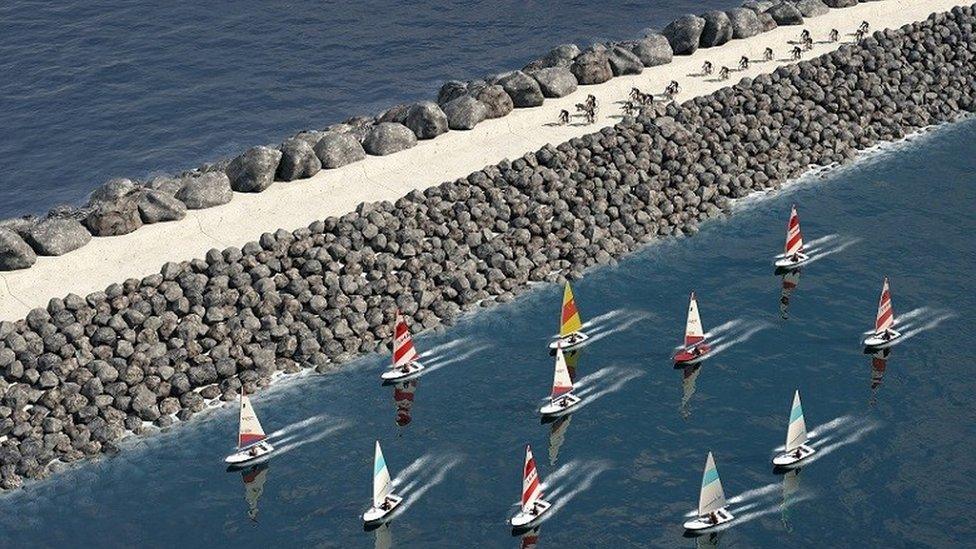
- Published21 November 2014
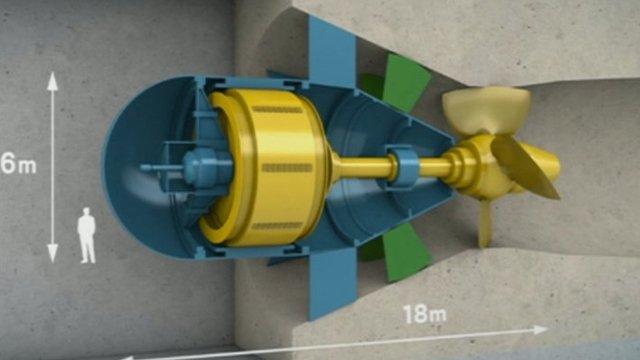
- Published7 November 2016
